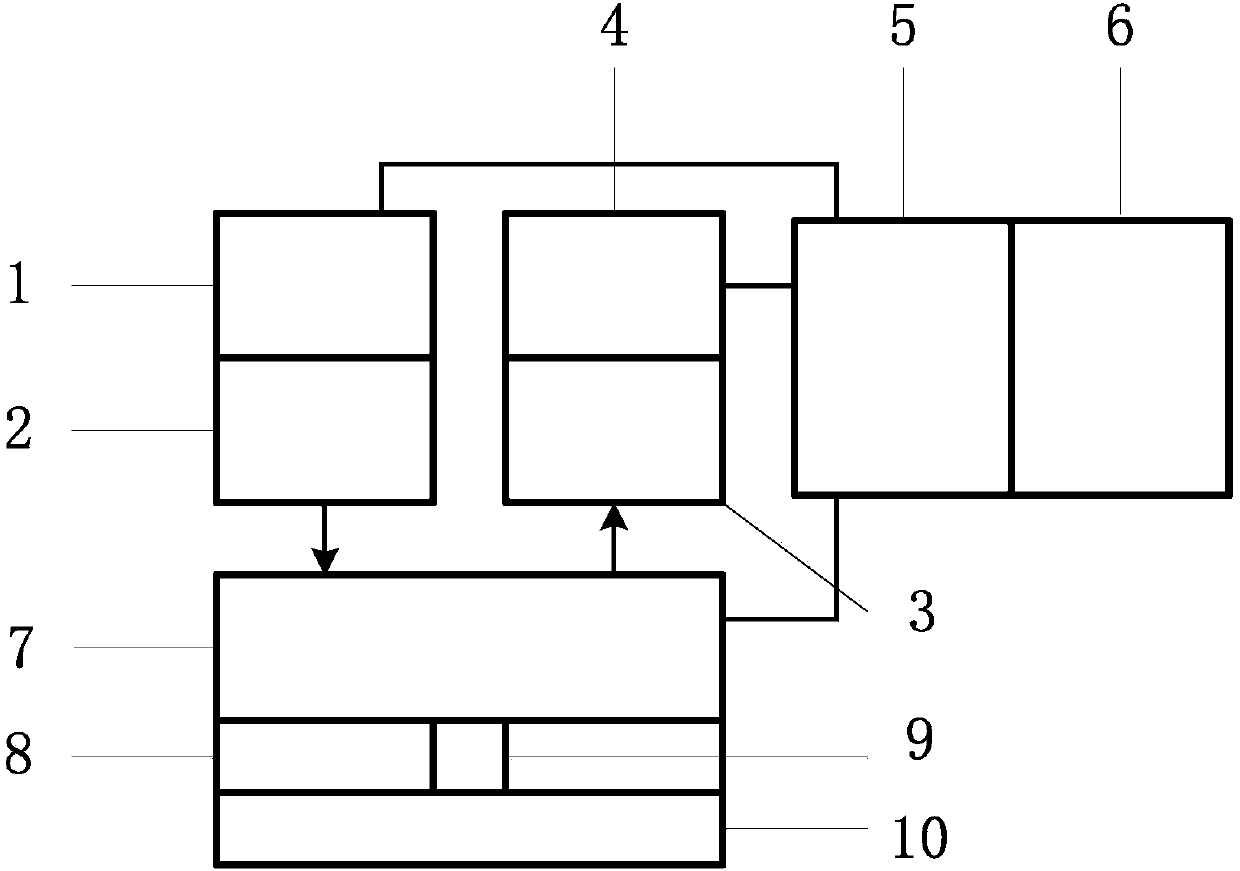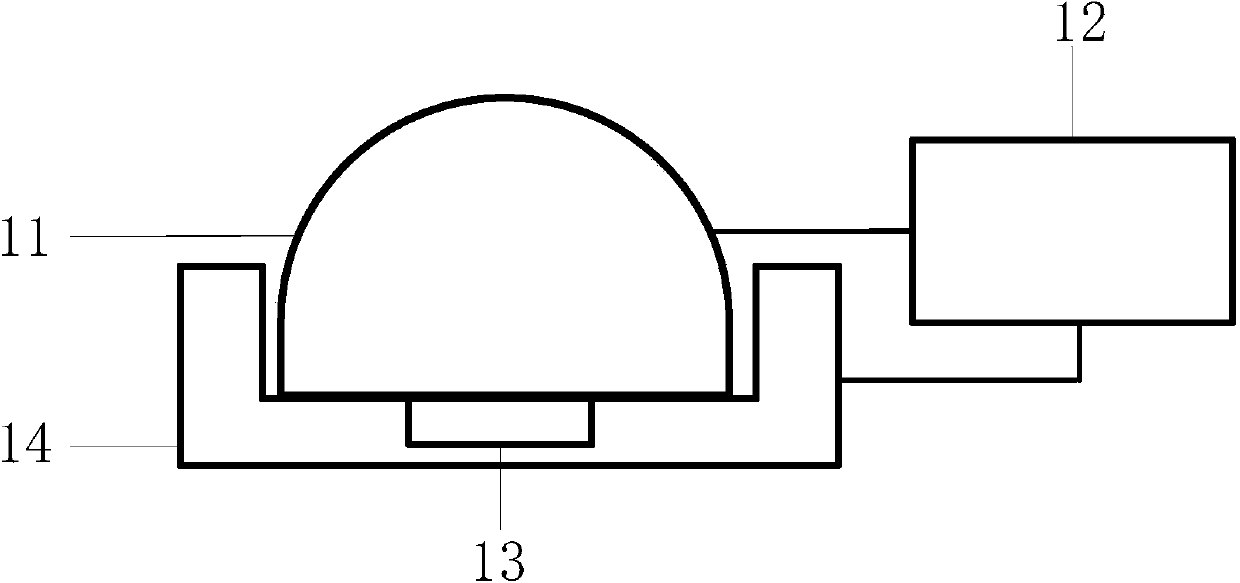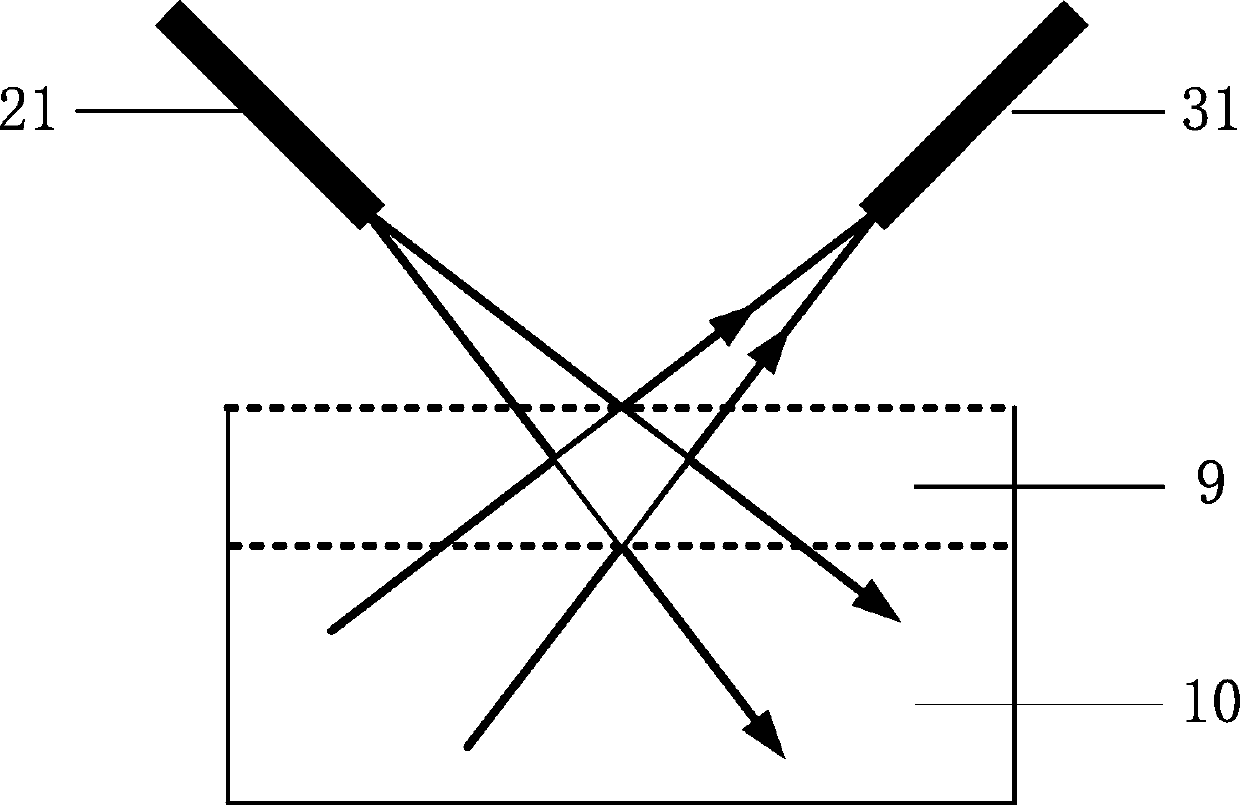Non-invasive skin free-cholesterol detection device for evaluating atherosclerosis risk
A technology for atherosclerosis and risk assessment, applied in applications, biological testing, material inspection, etc., can solve problems such as large color differences, skin surface shape changes, complex procedures, etc., to achieve consistent contact pressure and reduce measurement errors , to avoid the effect of measurement error
- Summary
- Abstract
- Description
- Claims
- Application Information
AI Technical Summary
Problems solved by technology
Method used
Image
Examples
Embodiment 1
[0038] Cholesterol-specific conjugates, enzymes, and cross-linking agents in the detection reagent are polymers of digitonin, horseradish peroxidase, and maleic anhydride-N-vinylpyrrolidone, respectively, and the main component of the indicator is 3,3' ,5,5'-Tetramethylbenzidine. First, clean the skin of the palm of the subject, and after the skin is dry, drop the detection reagent onto the part of the palm to be tested. After approximately 1 minute of incubation, blot the test area dry to remove detection reagent that is not bound to free cholesterol. Then, drop 3,3',5,5'-tetramethylbenzidine in the test area to react with the horseradish peroxidase in the detection reagent, and the degree of reaction is related to the combined digitonin and cholesterol content in the skin Proportional. After another 2 minutes, the diffuse reflectance spectrum of the reaction reagent is measured using a detection device.
[0039] The detection device is composed of a light source part, a t...
Embodiment 2
[0044] In this embodiment, a lens group is used instead of an optical fiber when constructing the transmitting part and the receiving part. The light source is a white LED, and the light emitted by the LED passes through the emitting part composed of a collimating lens group and a filter, and then irradiates the selected area of the skin coated with the reagent, and the reflected light in this area passes through a receiving part composed of a filter and a lens. After that, it is received by the light detection component, where the light detection component is a micro spectrometer. By optimizing the design of the focal length, relative position, and relative angle of the transmitting part and the receiving part, the receiving part can only receive the light beam reflected by the reaction reagent, and avoid the influence of the light beam reflected by the subject's skin on the measurement result. The analysis and processing system analyzes and processes the spectral informati...
PUM
| Property | Measurement | Unit |
|---|---|---|
| diameter | aaaaa | aaaaa |
| angle of incidence | aaaaa | aaaaa |
Abstract
Description
Claims
Application Information
 Login to View More
Login to View More - R&D
- Intellectual Property
- Life Sciences
- Materials
- Tech Scout
- Unparalleled Data Quality
- Higher Quality Content
- 60% Fewer Hallucinations
Browse by: Latest US Patents, China's latest patents, Technical Efficacy Thesaurus, Application Domain, Technology Topic, Popular Technical Reports.
© 2025 PatSnap. All rights reserved.Legal|Privacy policy|Modern Slavery Act Transparency Statement|Sitemap|About US| Contact US: help@patsnap.com



